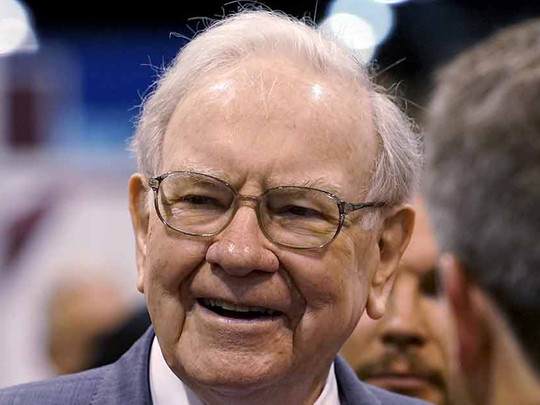
New York Seattle: Warren Buffett, who built Berkshire Hathaway Inc into a conglomerate with a market value of more than $350 billion, said his firm isn’t even close to being a too-big-to- fail risk to the economy.
Regulators haven’t contacted Berkshire to discuss its status as a possible systemically important financial institution, Buffett said Saturday at the company’s annual meeting in Omaha, Nebraska. The SIFI tag subjects companies to Federal Reserve oversight that could include tougher capital, leverage and liquidity requirements.
“I do not think that Berkshire Hathaway comes within miles of qualifying as a SIFI,” said Buffett, the firm’s chairman and chief executive officer. He said SIFIs tend to get at least 85 per cent of revenue from financial operations, and “we don’t come remotely close to that.”
Berkshire’s operations range from insurers to heavy manufacturers, retailers and one of the biggest US railroads. Buffett was a source of liquidity during the worldwide credit crisis beginning in 2008, extending billions of dollars to companies including Goldman Sachs Group Inc and General Electric Co. through preferred investments.
“During the last time of trouble, we were about the only party that was supplying help to the financial system,” Buffett said. “We will always conduct ourselves in a way such that the problems of others can’t hurt us.”
Derivatives Risk
Berkshire’s risk tied to derivatives has declined in recent years as Buffett, 84, exited some contracts and financial markets improved. The company’s liabilities tied to equity-index options and credit-default swaps plunged to $3.5 billion as of March 31 from about $15 billion six years earlier.
American International Group Inc, the largest commercial insurer in the US and Canada, is among companies designated by a Treasury Department-led panel as a non-bank SIFI. The others are insurer MetLife Inc, which sued the US to reverse the decision; GE, which plans to exit most lending operations as a way to shed the tag; and Prudential Financial Inc
Bank holding companies with more than $50 billion in assets — including Bank of America Corp, JPMorgan Chase & Co., Morgan Stanley, Goldman Sachs, Wells Fargo & Co. and Citigroup Inc — are automatically subject to heightened Fed supervision.












